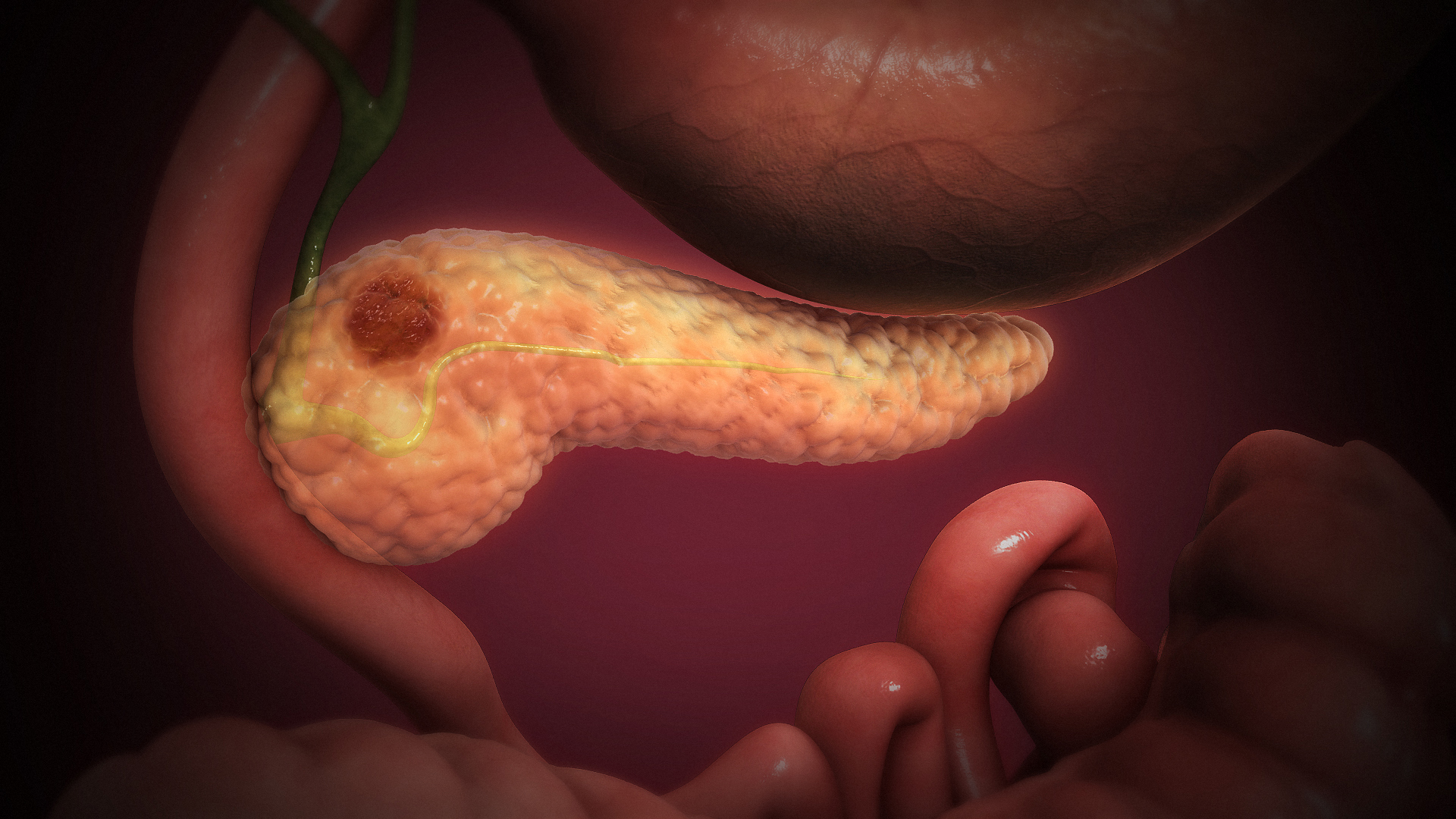Pancreatic cancer is a type of cancer that affects the tissues of the pancreas, an organ in the body that lies behind the lower part of the stomach. The pancreas releases an enzyme that is responsible for the digestion of the food and produces hormones that manage blood sugar. Several growths occur in the pancreas which is cancerous as well as non-cancerous. The most common is the one that forms in the cells that line ducts carrying digestive enzymes.

Symptoms
Symptoms and signs of pancreatic cancer are not visible until the disease gets advanced. Some of the symptoms include:
- Pain in the abdomen that radiates to the back
- Unintended loss in the weight
- Loss of appetite
- Symptoms of jaundice such as yellowing of the skin and the whitening of eyes
- Dark-colored stool changes to light in color
- Color of urine changes to dark-color
- Itchiness on the skin
- Diagnosis of diabetes or existing diabetes becomes more difficult to control
- Blood clots in the body
- Fatigue
- Nausea and vomiting
- Gall bladder or enlargement of the liver
If any of these symptoms are visible, it must be reported to a physician for better consultation.
Causes
The exact cause for pancreatic cancer is not known yet, however, some factors given below may increase the risk of cancer.
- Smoking and drinking alcohol may be one of the reasons that are responsible for the growth of cancerous cells in the pancreas.
- Diabetes can also be an important reason for the development of cancer in the pancreas.
- Chronic inflation of the pancreas which is called pancreatitis can be responsible for the development of the cells in the lining of the pancreas which is cancerous in nature.
- Obesity may also be responsible for the formation of cancerous cells in the pancreas.
- Genetic factors: Changes or damage in a person’s DNA leads to damage in the genes that control cell division. These changes pass down through the family which is evidence to prove that pancreatic cancer runs in families.
- Environmental toxins: Environmental substances such as pesticides, dyes, and chemicals used in metal refining increases the risk of pancreatic cancer. These toxins damage the cells and affect their ability to function normally. This can result in cancerous growth inside the pancreas.
- Medical factors: Medical factors such as age, diabetes, gingivitis or periodontal disease, cirrhosis or scarring of the liver.
Treatment
Treatment of pancreatic cancer depends on various factors such as type of cancer, stage of cancer, age of the patient, and health status. The aim of the treatment should be to remove cancer and relieve painful symptoms. Some of the treatment methods include:
- Surgery- Surgery is performed to remove some parts or all parts of the pancreas. The main surgical procedures include Whipple procedure, distal pancreatectomy, total pancreatectomy, and palliative surgery. These surgical methods help in removing the cancerous cells from the pancreas.
- Chemotherapy- In this method, a drug is injected in the vein or taken orally to kill the cancer cells. In most of the cases, more than one chemotherapy drug is given to kill these cells.
- Radiation Therapy- In this therapy, high radiation beams such as X-rays and protons are used to destroy the cancer cells. Radiation therapy can be given to cancer patients before or after surgery.
These treatments help in minimizing the cancer cells or help you in getting rid of them.
Disclaimer: The information in no way constitutes, or should be construed as medical advice. Nor is the above article an endorsement of any research findings discussed in the article an endorsement for any of the source publications.








